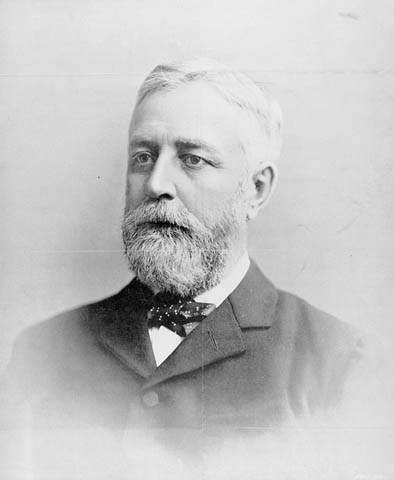Browse "Rights"
-
Article
Union Centrals, Quebec
Quebec has 4 central labour unions: the Confederation of National Trade Unions, the Quebec Federation of Labour, the Quebec Labour Congress and the Congress of Democratic Trade Unions. The Quebec Federation of Labour is the largest trade union association in Quebec.
"https://d2ttikhf7xbzbs.cloudfront.net/media/media/aee50531-a98b-429d-b2c6-3dd787abde3f.jpg" // resources/views/front/categories/view.blade.php
https://d2ttikhf7xbzbs.cloudfront.net/media/media/aee50531-a98b-429d-b2c6-3dd787abde3f.jpg
-
Article
United Nations Declaration on the Rights of Indigenous Peoples (UNDRIP)
The United Nations Declaration on the Rights of Indigenous Peoples (UNDRIP) is an international human rights instrument adopted by the United Nations (UN). It provides comprehensive details about the nature and content of Indigenous rights. It sets out the obligations of countries in relation to these rights. In 2021, the federal government passed the United Nations Declaration on the Rights of Indigenous Peoples Act (UNDA). According to the Supreme Court of Canada, this Act means the UNDRIP is now “incorporated into the country’s domestic positive law.” As such, it is certain that the UNDRIP impacts Canadian law, though exactly how is yet to be fully clarified by the Supreme Court of Canada.
"https://development.thecanadianencyclopedia.ca/images/tce_placeholder.jpg?v=e9dca980c9bdb3aa11e832e7ea94f5d9" // resources/views/front/categories/view.blade.php
https://development.thecanadianencyclopedia.ca/images/tce_placeholder.jpg?v=e9dca980c9bdb3aa11e832e7ea94f5d9
-
Editorial
Voting in Early Canada
The following article is an editorial written by The Canadian Encyclopedia staff. Editorials are not usually updated. Before Confederation, the right to vote in elections was restricted to a small, wealthy, property-owning elite. Because votes were declared publicly, elections were rowdy, highly competitive and even violent. Voting by secret ballot was first introduced in New Brunswick in 1855 and federally in 1874.
"https://d2ttikhf7xbzbs.cloudfront.net/media/media/1e88decf-02d6-4b89-b522-383f360ecac4.jpg" // resources/views/front/categories/view.blade.php
https://d2ttikhf7xbzbs.cloudfront.net/media/media/1e88decf-02d6-4b89-b522-383f360ecac4.jpg
-
Collection
Voting Rights
The right to vote in Canada has not been straightforward. Race, ethnicity, and gender were often factors in determining who had the right to vote, a right that, once earned, could be taken away. Learn about the complicated history of Voting Rights in Canada.
"https://d2ttikhf7xbzbs.cloudfront.net/Final_1949.jpg" // resources/views/front/categories/view.blade.php
https://d2ttikhf7xbzbs.cloudfront.net/Final_1949.jpg
-
Article
Women and the Law
Women have looked to the law as a tool to change their circumstances, while at the same time the law is one of the instruments which confirms their dependent status as citizens (see Status of Women). The first phase of the Women's Movement, in proclaiming that women were capable of reason as well as reproduction and nurturing, claimed a place for women in the public sphere, while also relying upon the concept of "separate spheres" to delineate their areas of strength and competence.
"https://development.thecanadianencyclopedia.ca/images/tce_placeholder.jpg?v=e9dca980c9bdb3aa11e832e7ea94f5d9" // resources/views/front/categories/view.blade.php
https://development.thecanadianencyclopedia.ca/images/tce_placeholder.jpg?v=e9dca980c9bdb3aa11e832e7ea94f5d9
-
Article
Workers' Compensation
Workers' compensation is the name of legislation designed to provide benefits, medical care and rehabilitation services to individuals who suffer workplace injuries or contract occupational diseases. (See also Social Programs in Canada.)
"https://d2ttikhf7xbzbs.cloudfront.net/sirwilliamralphmeredith/williamralphmeredith.jpg" // resources/views/front/categories/view.blade.php
https://d2ttikhf7xbzbs.cloudfront.net/sirwilliamralphmeredith/williamralphmeredith.jpg
-
Article
World Sikh Organization of Canada
The World Sikh Organization (WSO) of Canada is a non-profit organization. As an advocate for human rights in Canada, Punjab and around the world, WSO Canada has been involved in several significant court cases. This has helped develop Canadian human rights laws and customs.
"https://d2ttikhf7xbzbs.cloudfront.net/media/new_article_images/PalbinderKaurShergill/Palbinder Kaur Shergill.png" // resources/views/front/categories/view.blade.php
https://d2ttikhf7xbzbs.cloudfront.net/media/new_article_images/PalbinderKaurShergill/Palbinder Kaur Shergill.png
-
"https://d2ttikhf7xbzbs.cloudfront.net/media/quizzes/CC-Voting-Rights-in-Canada-1.jpg" // resources/views/front/categories/view.blade.php
https://d2ttikhf7xbzbs.cloudfront.net/media/quizzes/CC-Voting-Rights-in-Canada-1.jpg
-
"https://www.historicacanada.ca/sites/default/files/multimedia/minutes/images/chloe_cooley_thumb.jpg" // resources/views/front/categories/view.blade.php
https://www.historicacanada.ca/sites/default/files/multimedia/minutes/images/chloe_cooley_thumb.jpg
